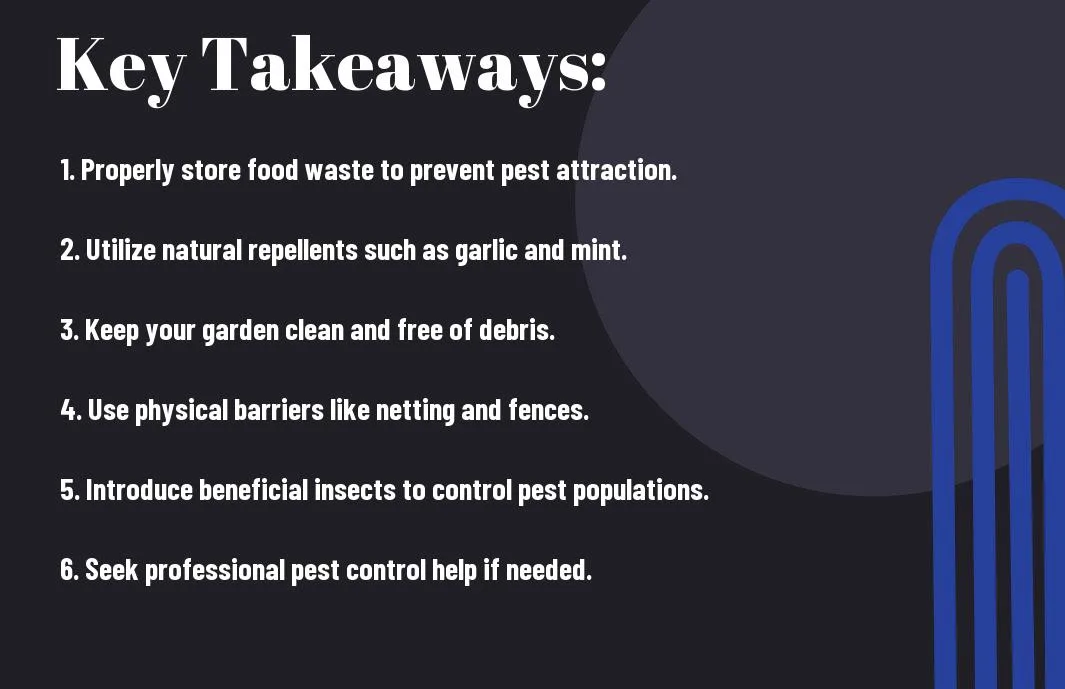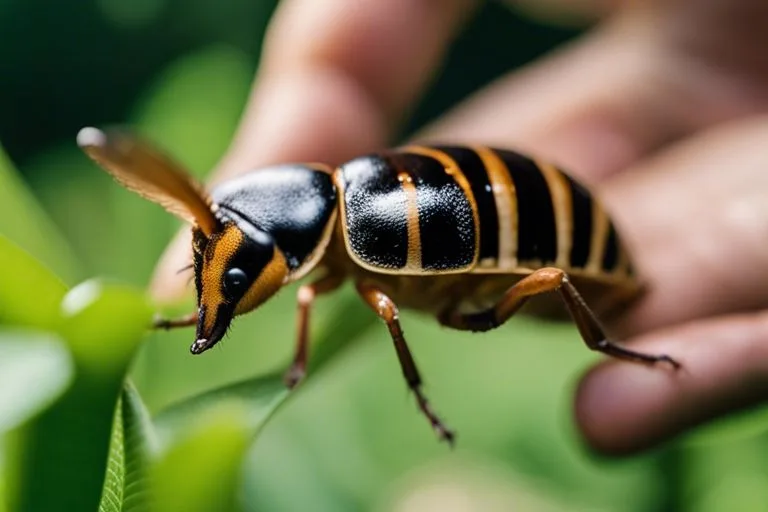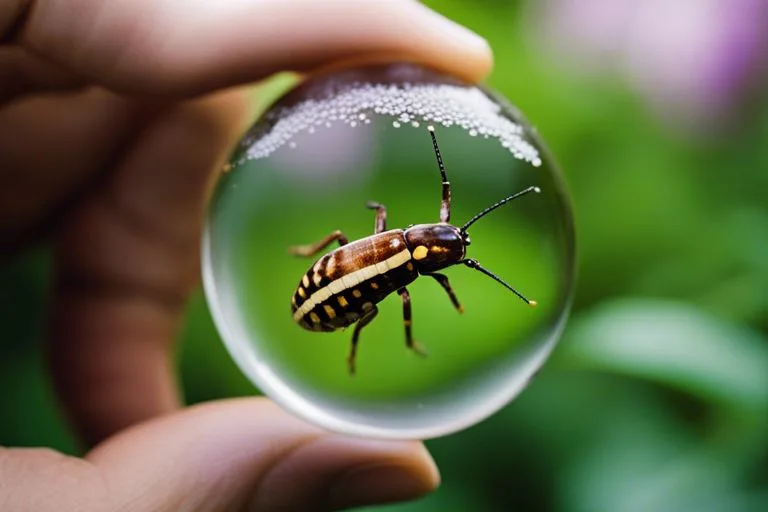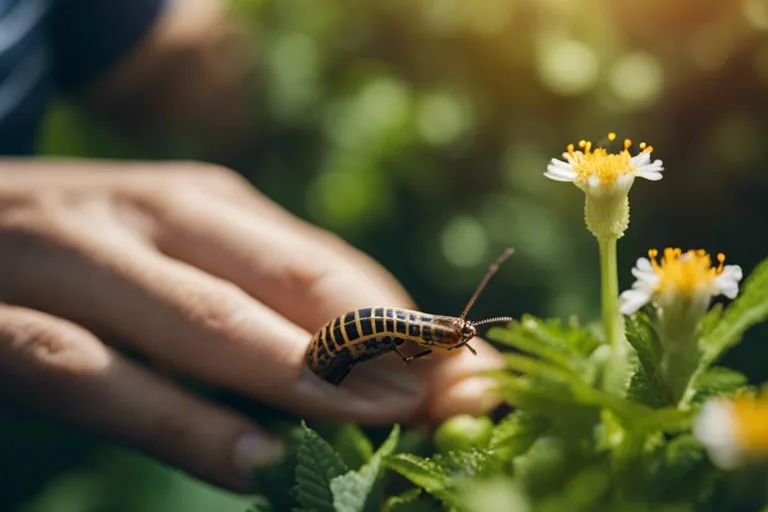Just as the seasons change, so do the pests that invade our beloved gardens in the UK. From pesky slugs to cunning mice, these unwanted visitors can wreak havoc on our carefully tended plants. But fear not, for there are solutions at hand! Whether you are dealing with a mouse infestation or battling against other garden pests, this informative guide will provide you with the tips and tricks you need to protect your garden oasis. For specific advice on controlling mice, check out this Pest advice for controlling Mice. Let’s keep our gardens pest-free and blooming beautifully!
Common Pests Found in UK Gardens
Before venturing into solutions, it’s crucial to understand the common pests that can wreak havoc in your UK garden. While some pests can be annoying, others can cause significant damage to your plants. To combat these garden nuisances, it’s crucial to explore natural pest controls in the garden here.
Slugs and Snails
Slugs and snails can be a gardener’s worst nightmare, especially during damp weather. These slimy creatures feast on a wide variety of plants, leaving behind a trail of destruction in your garden. To deter slugs and snails, consider using natural remedies such as crushed eggshells, copper tape, or beer traps. These methods can help protect your precious plants from these voracious pests.
Aphids and Whiteflies
To tackle aphids and whiteflies, it’s crucial to monitor your plants regularly. These tiny insects feed on plant sap, causing wilting and stunted growth. Plus, they can spread diseases among your plants. Consider introducing natural predators like ladybugs or lacewings to keep aphid and whitefly populations in check.
Plus, you can make a homemade insecticidal soap by mixing liquid soap with water and spraying it on affected plants. This solution can help suffocate and eliminate aphids and whiteflies without harming your garden.
Caterpillars and Maggots
With their insatiable appetites, caterpillars and maggots can quickly defoliate your plants if left unchecked. To protect your garden from these pests, encourage natural predators like birds and hoverflies. Additionally, handpicking caterpillars and maggots off your plants can be an effective control method.
This proactive approach can help keep caterpillar and maggot populations under control, ensuring a healthy and thriving garden for you to enjoy.
Identifying Pest Damage
Any Controlling pests and diseases without chemicals is vital for maintaining a healthy garden. Proper identification of pest damage is crucial to effectively combat infestations and protect your plants.
Signs of Infestation
Infestation can often be detected by observing changes in plant health and appearance. Look for wilting, yellowing, or distorted leaves, holes in foliage, webs, or an unusual increase in insect activity around your plants. Regularly inspect the undersides of leaves and along stems where pests tend to hide.
Common Symptoms of Pest Damage
With pests such as aphids, you may notice sticky residues on leaves or the presence of sooty mold. Caterpillars often leave behind large holes in leaves, while spider mites create a stippled appearance. It is crucial to familiarize yourself with common pest symptoms to quickly address and minimize the damage they cause.
Common symptoms of pest damage can vary depending on the type of pest infestation. It’s crucial to monitor your plants regularly to catch any signs of damage early on and take appropriate action to protect your garden.
How to Inspect Your Garden
To effectively inspect your garden for pest damage, start by closely examining all parts of your plants, including leaves, stems, and the soil around the base. Look for eggs, larvae, insects, or any unusual markings or discoloration. Consider using a magnifying glass to get a closer look at small pests or their eggs.
Understanding your garden’s ecosystem and the habits of common garden pests is crucial for early detection and prevention of infestations. By regularly monitoring your plants and being proactive in tackling pest issues, you can help maintain a thriving garden all season long.
Organic Control Methods
Encouraging Beneficial Insects
After all, prevention is always better than cure when it comes to dealing with pests in your UK garden. One of the most effective organic control methods is to encourage beneficial insects that will naturally keep pest populations in check. Ladybirds, lacewings, and hoverflies are just a few examples of insects that feed on aphids, caterpillars, and other common garden pests.
Encouraging these beneficial insects can be as simple as planting a diverse range of flowers, such as marigolds and lavender, to attract them to your garden. You can also create insect hotels or provide shelter for these helpful critters to thrive in your outdoor space.
Using Physical Barriers
Organic control methods also include using physical barriers to protect your plants from pests. Installing fine mesh netting over vegetable beds can prevent butterflies from laying eggs on your crops, which in turn reduces the chances of caterpillar infestations. Additionally, erecting copper tape around pots and containers can deter slugs and snails from munching on your prized plants.
Using physical barriers not only provides an immediate solution to pest problems but also helps maintain a healthy and thriving garden ecosystem without the need for harmful chemicals.
Sprays and Repellents
Repellents made from natural ingredients like garlic, neem oil, or chilli can also be effective in deterring pests from your garden plants. These organic sprays can be easily made at home or purchased from garden centres, offering a safe and environmentally friendly alternative to chemical pesticides.
Methods
When using sprays and repellents, it’s important to apply them regularly and according to instructions to ensure maximum effectiveness. By incorporating these organic control methods into your gardening routine, you can protect your UK garden from pests while promoting a thriving and balanced outdoor space.
Chemical Control Methods
Insecticides and Pesticides
All gardeners encounter pests at some point in their gardening journey. The use of insecticides and pesticides can help control these unwanted visitors. The key is to select products that are specifically designed for the pests you are dealing with and follow the instructions carefully to protect yourself, other wildlife, and the environment.
Systemic Controls
Pesticides that work systemically are absorbed by the plant and distributed throughout its tissues. This means that when pests feed on the plant, they ingest the pesticide along with it. Systemic controls can be a more targeted approach compared to broad-spectrum insecticides, as they are only effective against pests that feed on the treated plants.
For instance, if you are dealing with aphids on your roses, you can use a systemic pesticide that is applied to the soil around the plant. As the rose takes up the pesticide through its roots, it becomes toxic to aphids feeding on its leaves.
Safety Precautions
Methods to ensure your safety and the safety of the environment should always be a top priority when using chemical control methods in your garden. Be sure to wear protective clothing, such as gloves and a mask, when applying insecticides and pesticides. Additionally, always store these products in a secure place, away from children and pets.
Another important safety precaution is to carefully read and follow the instructions on the product label. Overuse or misuse of chemical controls can harm beneficial insects, birds, and other wildlife in your garden, so it is crucial to use these products responsibly.
Companion Planting for Pest Control
Once again, companion planting proves to be a valuable strategy in organic pest control in your UK garden. By choosing the right combination of plants, you can naturally deter pests and protect your garden without resorting to harmful chemicals.
Planting Marigolds and Nasturtiums
Any avid gardener in the UK knows the power of marigolds and nasturtiums in warding off pests. Marigolds not only add a splash of vibrant color to your garden but also repel nematodes, whiteflies, and other harmful insects. Nasturtiums, with their pungent scent, act as a natural repellent for aphids, whiteflies, and squash bugs.
Using Garlic and Chives
Chives, with their strong onion scent, are a great addition to your garden for pest control. They deter aphids, Japanese beetles, and carrot rust flies. Garlic, with its potent aroma, can also ward off pests like aphids, root maggots, and cabbage loopers.
Both garlic and chives not only help in repelling pests but also add flavor to your dishes. So, planting them in your garden serves a dual purpose of pest control and culinary enhancement.
Incorporating Herbs and Flowers
An assortment of herbs and flowers can work wonders in keeping pests at bay in your UK garden. Plants like lavender, rosemary, and mint can repel mosquitoes, flies, and beetles. Additionally, flowers such as calendula, dill, and yarrow attract beneficial insects like ladybugs and lacewings, which feed on garden pests.
It’s imperative to create a diverse and balanced ecosystem in your garden by incorporating various herbs and flowers. This not only controls pests naturally but also enhances the overall health and beauty of your garden.
Garden Maintenance for Pest Prevention
Keeping Your Garden Clean
For keeping pests at bay in your UK garden, maintaining cleanliness is crucial. Pests thrive in unkempt areas where they can find shelter and breeding grounds. Regularly remove fallen leaves, old plant debris, and any standing water where pests like slugs and mosquitoes tend to gather. By keeping your garden tidy, you make it less inviting for pests to settle in.
Removing Weeds and Debris
Prevention is key when it comes to managing pests in your garden. Weeds and debris act as hiding spots for pests, providing them with easy access to plants. By regularly removing weeds and debris, you eliminate potential habitats for pests to take shelter and breed. This simple task can significantly reduce the likelihood of pests infesting your garden.
In terms of removing weeds and debris, be sure to dispose of them properly to prevent any pests that may have taken refuge in them from returning to your garden. By maintaining a clean and clutter-free garden, you create an environment that is less appealing to pests, helping to keep them at bay.
Watering and Mulching Techniques
Maintenance of watering and mulching techniques is necessary in preventing pests in your UK garden. Overwatering can lead to waterlogged soil, attracting pests like slugs and snails. By watering your plants at their base and using mulch to retain moisture and prevent weeds, you can create a healthier environment that is less attractive to pests.
One effective technique is to water your plants early in the morning to allow them to dry out during the day, reducing the risk of fungal diseases and deterring pests. Additionally, using organic mulch like wood chips or straw can help regulate soil temperature and moisture while also suppressing weed growth, further minimizing opportunities for pests to thrive in your garden.
Conclusion
Upon reflecting on the various solutions presented in this article for managing pests in your UK garden, it is evident that with a combination of preventive measures, natural remedies, and environmentally friendly products, you can effectively protect your plants from potential harm. By following the tips and advice shared here, you can create a healthy and thriving garden that is resilient against common pests.
Be mindful of, a well-maintained garden not only brings joy and beauty but also serves as a sanctuary for beneficial insects and wildlife. So, take the necessary steps to care for your garden organically and sustainably, and you’ll be rewarded with a flourishing outdoor space that you can enjoy for years to come.




